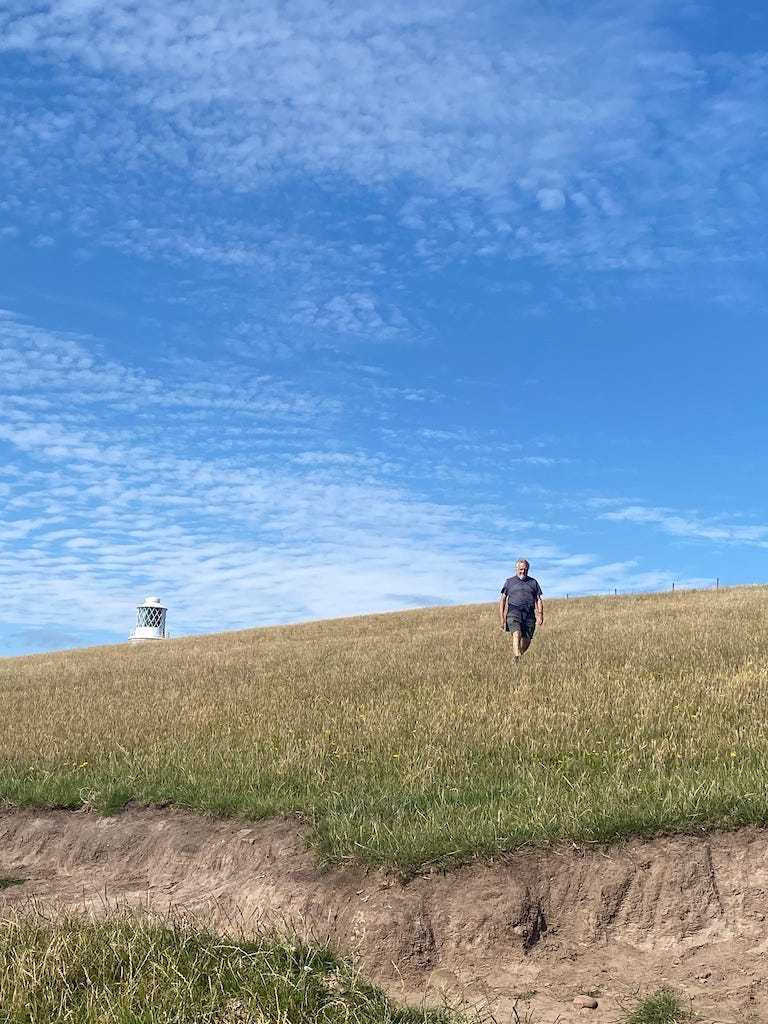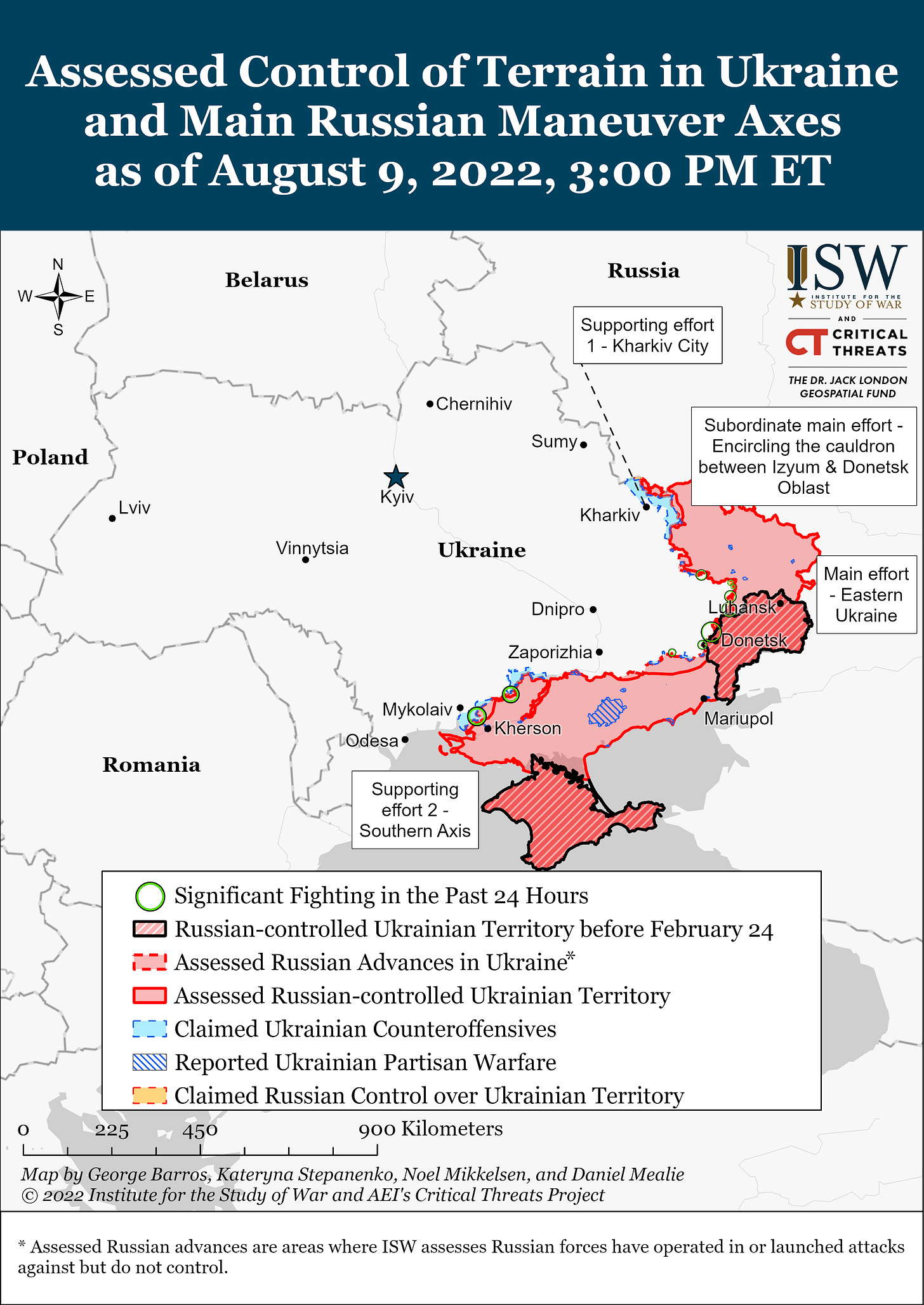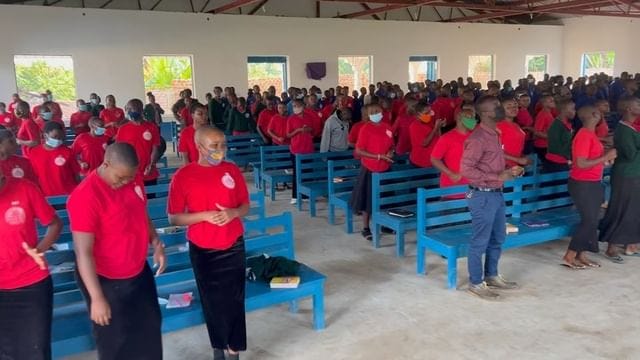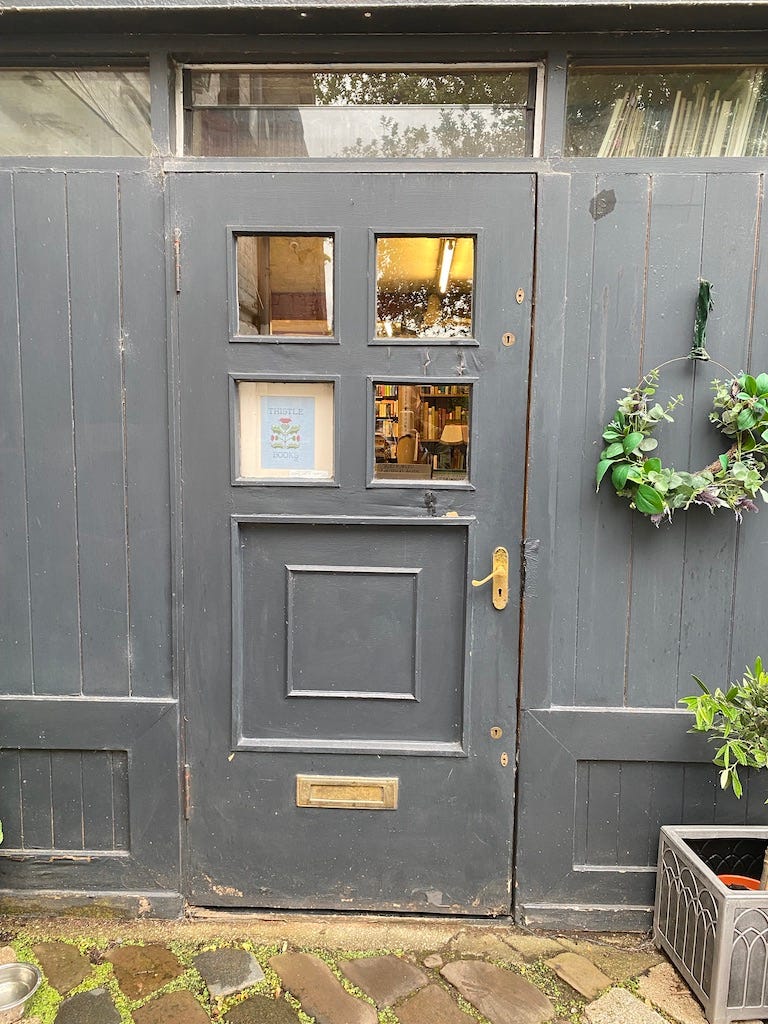Travel is an art few of us do artfully. My husband and I have returned from a month-plus overseas. We immersed ourselves in some out-of-the-way parts of a landscape that’s distant but familiar to many of us—England, Scotland, and Norway. We missed hitting all the sights the guides said we should in favor of engaging a few that really interested us. We aimed to prioritize people over places, and met up with wonderful new and old friends along the way. Telling people it was our 40th anniversary proved a conversation starter over and over.
At the same time, we quickly rediscovered an insight from philosopher Alain de Botton about arriving at each new place —
A momentous but until then overlooked fact was making its first appearance: that I had inadvertently brought myself with me to the island.
In other words, exotic places are fun to imagine, but when you actually arrive it’s usually with all your baggage: worries from home, bad habits you’d like to have left behind, and that nagging scratchy throat—all ready to dull the sublime landscape of your expectations.
Still the world beckons. Everywhere we were reminded how we’ve all been through a pandemic, coming out on the other side changed, a bit broken, and mending. People are friendlier, kinder than the headlines make them out to be. Strangers appeared almost staged they were so ready to help us out in a couple of jams.
The art of travel is less about keeping the itinerary and more about taking the plunge, about leaning into the unknowns because discovery is what the journey is all about. My friend Jenny Cromartie, who spent part of her summer working with refugees in Lebanon, put it this way: “Remember how vast is the story, and how little your part.”
Welcome back to this Aug. 12 Globe Trot. The world’s vast story this week includes war in Ukraine, renewed attacks in Syria, and migration dangers, but also bicycles and antiquarian bookshops.
Ukraine: Satellite images confirm major damage and a number of destroyed Russian warplanes at a Crimea airbase following explosions earlier this week. Ukraine officially has not claimed responsibility for what appears to be its first attack on the peninsula, illegally occupied by Russia since 2014. Such a strike could be a surprisingly long-distance salvo by Ukraine in a new phase of the war:
… with the heaviest fighting shifting to a roughly 350-kilometer front line stretching southwest from near Zaporizhzhya to Kherson, paralleling the Dnieper River.
The Kyiv Independent has a good breakdown on how such fighting may unfold.
Here’s a look inside Russian-occupied Kherson.
The UN’s nuclear watchdog agency warned of “catastrophic consequences” of continued fighting near Europe’s largest atomic plant at Zaporizhzhia. The plant near the front line is held by Russian troops and operated by Ukrainian workers. Workers say it was struck five times on Thursday, including near the site where radioactive materials are stored.
Ukraine today has readied a plan for evacuations around Zaporizhzhia, with officials warning, “The level of danger is the highest.”
Syria: This week marks the 10th anniversary of the abduction of American journalist Austin Tice, and his 41st birthday. “We know with certainty that [Austin] has been held by the Government of Syria,” President Joe Biden said Wednesday, making official for the first time persistent reports that Tice is alive.
Using drones, Turkey shelled sites around Qamishli this week, killing four members of the Syrian Democratic Forces (SDF) and at least three civilians. In a military escalation against the self-administration zone in the northeast, Turkey has struck dozens of villages, killing civilians, including 5 children in one 24-hour period. The area, once secured by U.S. coalition forces working with the SDF in the fight against ISIS, has been subject to incursions by Turkey’s President Recep Tayyip Erdogan since 2019. Most recently after a July meeting with Russian President Vladimir Putin, Erdogan told reporters the two discussed ways to combat “terrorist organizations nesting in Syria,” a reference to the Kurdish-led SDF and its democratic movement.
Iran: In a criminal complaint unsealed Wednesday, the United State accused Iran of plotting to assassinate John Bolton, national security adviser to President Donald Trump. Despite knowing the threat, Trump yanked Bolton’s Secret Service protection the day he resigned, but incoming President Joe Biden restored it.
Biden would like to restore as well the 2015 nuclear pact between Iran and six world powers, despite Iran hiring assassins to kill a top U.S. official, and months of fruitless negotiations. U.S. and European officials announced Monday that the text for the revised deal was completed and submitted to Iran. Seasoned experts like Amb. Dennis Ross say the changes Tehran wants show “Iran has something to hide.”

Migrant smuggling at the U.S. southern border has evolved from a "network of freelance ‘coyotes’ into a multi-billion-dollar international business controlled by organized crime, including some of Mexico’s most violent drug cartels."
People smugglers are still at it in the Mediterranean too. More than 66,000 arrivals have made sea crossings to Europe this year, with at least 945 dead or missing, according to UN figures.
Molly Blackall has an up-close account worth your time after spending three weeks aboard a search-and-rescue vessel patrolling the central Mediterranean. For one 24-year-old from South Sudan …
This is his seventh attempt to reach Europe, having fled war in his home in March 2019. He has tried to cross the Mediterranean six times, each he was returned to a Libyan detention centre, where he says he was beaten and given only one piece of bread per day.
Haiti: Religious leaders in an open letter called for international intervention following a month of “diabolical, frightening and unacceptable” gang violence. One 10-day battle in July between two armed gangs in the populous Port-au-Prince slum of Cité Soleil killed 209 people and forced 3,000 to flee their homes.
A UN report found gangs denying food and water to certain parts of the city for weeks. The World Food Programme, to bypass gangs, has chartered ferries to deliver food supplies by sea rather than trucks through Port-au-Prince.
Zambia: Distance to school is a particular challenge for girls in sub-Saharan Africa, but a Brookings study shows how bicycles can serve as an effective conditional non-cash transfer to help girls get to and stay in school.
A new chapel building at Christ School in Uganda is making a difference, too. With support from the mission organization Serge, it’s the only structure large enough in the area to house all 350 students at one time. Sound up!
United Kingdom: Antiquarian bookshops are going the way of gas-fueled cars, and with their disappearance something is lost in the character and collective memory of a city. On our journey we made searching them out a habit, and it was a challenge. But on a side street in Glasgow, down a driveway and around the back of an apartment building, we reached Thistle Books. Inside we found a collection of 1930s-era spy novels, Scottish authors, and a hymnal we are cherishing, Songs of Syon, a collection of “ancient proper tunes” from the Eastern and early Western church translated into English.







Love your reports, Mindy. Especially enjoyed the fact that you discovered a bookstore in Glasgow in an unlikely place. We would be much poorer without book sellers, I'm convinced.
Sounds like you had a lovely anniversary trip. Glad you are home to keep us abreast of important international news. Love the hymnal. Thanks for sharing it.